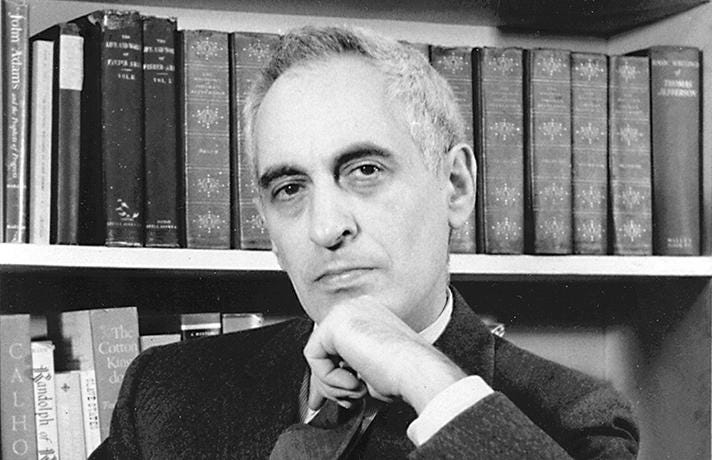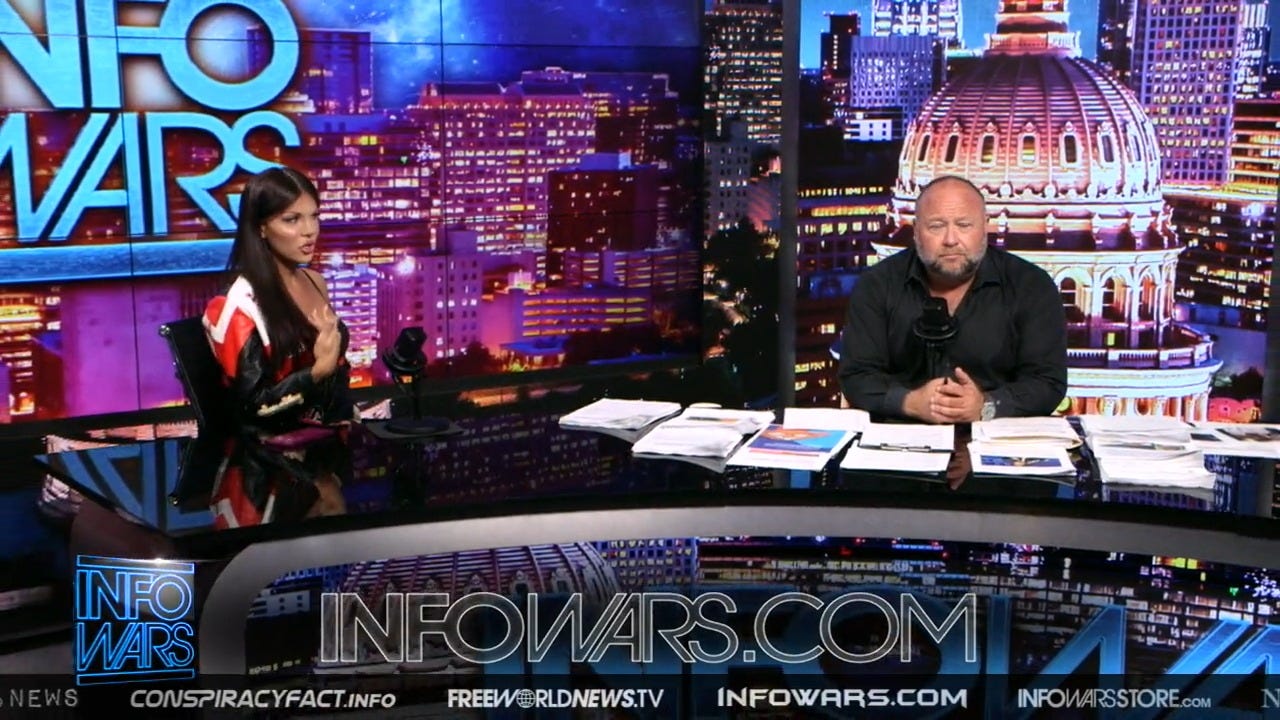There was much debate online recently over the political beliefs of country music singer Oliver Anthony. Anthony captured the hearts of conservatives with his “Rich Men North of Richmond”, which took aim at out of touch fatcat Yankees who have abandoned people like him. At first there was no question to conservatives, Anthony was definitely one of them. After all, he railed against welfare queens, taxes, and complained about elites not relating to regular folk. Anthony did alienate some of his newfound following when an interview of him appeared where he affirmed the “diversity is our strength” mantra. Then the first question at the first of this years Republican Party primary debates was the hosts asking the field for their interpretation of Athony’s masterpiece, to which an indignant Mr. Anthony then responded with derision for the entire field, reminding Republican partisans that these politicians were actually part of the elite he was singing about.
Still, most conservatives are not in any doubt that Oliver Anthony is one of them, and I think they’re correct. The fact that he is almost indistinguishable in his rhetoric from a Berniebro Democrat is a feature, not a bug. Neither is it a problem that the message in his song seemed inconsistent - targeting rich capitalists as the source of his problems in the same song that he complained about taxation and welfare spending. Conservatism in recent years has lost any positive content, it is now best understood as an anti-ideology, a vague, paranoid and inconsistent critique of a nebulous “elite”, the only point of which is to spread a general mistrust in whoever happens to be in power.
Conservatism in the Anglosphere has always understood itself as being a kind of “anti-ideology”, with cynicism about grand political programs and utopian visions defining it against the many grand political visions to come and go since the French Revolution. Indeed, Edmund Burke’s Reflections on the Revolution in France is considered the foundational text of traditional conservatism, with its bristling attack on the abstract ideals and utopian fantasies emboldening the bloody overthrow of organic institutions.
Modern conservatism in the English speaking world developed out of the cadre of conservatives who formed the National Review in 1955, led by William F. Buckley. Buckley believed he had found a program to unite the two camps who dominated the right, but had been up to that point adversarial: the Burkean conservatives, led by figureheads like Russell Kirk, and the increasingly expanding camp of libertarians, who had been influenced by works like Friedrich Hayeks The Road to Serfdom. The program that would unite them was the “fusionism” of Frank Meyer, a German-Jewish immigrant to the United States who himself abandoned communism after reading Hayek’s work while serving in the US Army.
Meyer’s argument was that the two sides had more that united them than divided them, and, underlying their seemingly disparate views was a deeper principle they agreed on: the foundation of society is a transcendent moral order. Meyer made the case to traditionalists that if they wanted a virtuous society which embodied traditional Christian morals, it was actually necessary to adopt the libertarian formula, since virtuous acts could only be virtuous if they were freely chosen over the option of evil, not compelled by any outside force like a Christian state.
Meyer’s arguments were more a demand for traditionalists to embrace a libertarian political program than a real synthesis of the two positions, but it succeeded in bringing the camps together and creating the intellectual basis for a movement that would eventually come to power in the Reagan Revolution. Since then, conservatism has defined itself with this dual program of Christian social conservatism and individual liberty, with a special emphasis on the importance of free market.
Since at least the 2000s, the conservatism of Reagan and Thatcher has been in retreat, while it found a resurgence with the Tea Party program during the Obama administration, this trend was swept aside by the muscular populism of Donald Trump. Since then, conservatism has lost any vestiges of whatever positive content it had remaining. Free market economics are still central to the establishment GOP politicians, but many conservatives now sound like economic populists, seeing rich capitalists as part of the same elite class as liberal politicians. While many conservatives still stand firm on abortion, there is little else in the way of the social conservatism that used to define the right: Trump was the most pro-gay US President in history, and modern conservatives are all too happy to embrace their own, based versions of “trans women” like Blair White if they affirm them back.
So what’s left? Well, there’s definitely a strong belief that the elites are evil - ridiculously, cartoonishly evil, to the point that they poison the water and the skies, intentionally derail trains, and start wars just to make common people suffer. There is also a strong cynicism about politics and idealism generally, not only is the conservative anti-ideological, but they are convinced everyone else is too, and that people that profess to believe in leftist ideals like egalitarianism are just cynics who don’t really believe it. As such, conservatives will often critique leftists for being inconsistent anti-racists or say things like their affirmation of trans rights is rooted in a hatred of women. Oliver Anthony engaged in some of this on his recent appearance on Joe Rogan. Rogan pointed out that Democrats in the early 90s “sounded like Nazis”, Oliver Anthony recognised the argument and immediately pointed out that Democrats like Hillary and Obama didn’t even support gay marriage in the 2000s!
It is of course an eternal source of frustration to people on the radical right that conservatives attack the left by holding them to the moral standard the left itself has established, thus enforcing the leftist moral framework on the whole political spectrum. This seems obviously counter-productive, until you realise there is no alternative program the conservatives are advancing anyway - all that matters is getting people to share the same sense of cynicism and mistrust of power, so an accusation of racism or homophobia works as well as anything else.
What’s the problem here? I think part of it is just an intelligence gap - people drawn to conservatism are generally less intelligent than liberals, they’re less likely to have any serious thoughts about politics beyond treating it as a kind of spectator sport. Still, conservatives have shown a willingness to rally around good policies like border walls and deportations when it was presented to them by a figure they liked, so a big part of the problem must be leadership. Being non-ideological isn’t necessarily a bad thing if you have leaders with a more worked out worldview who will defend your interests, but instead what we see on the right is a leadership composed of careerist politicians, infotainment talk/radio show hosts like Alex Jones, and vacuous social media influencers. There are exceptions, but in a sea of media content even the good voices are drowned out by the more sensationalist takes, “the elites are evil satanists and want to murder you and your family” is always going to play better to an audience of frustrated, dispossessed people than a more sober analysis.
This brings me to the point of the massive proliferation of dubious conspiracy theories on the right in recent years. Scott Greer published a good essay on the popularity of conspiracy theories on the right, which serve as an easy replacement for having any moral or ideological critique of the status quo. This definitely accelerated with COVID, where the media consensus and censorship of skeptical voices led to the right’s own feedback loop of sensational claims and conspiracies related to the pandemic. It was impossible to go on dissident right social media in 2020 and not be bombarded with promises of climate lockdowns, social credit scores, microchipping wrists, permanent state of emergency, and mass vaccine die-offs. None of this transpired, but the influencers who peddled these claims retain the audience they built off them, and are not held accountable by people who care less about public figures being factually correct than just being on the correct side of things, which is as far away from whatever the establishment is saying as possible.
The vague, early 2000s style of conspiracy is appealing to conservatives because it reinforces the same vision of a nebulous elite “keeping the people divided”. This meme has tended to reinforce a strange, pseudo-Marxist critique many on the right now make of the elites, which is that they want to divide people by race to distract from economic injustices. This is even projected back onto Occupy Wall Street, after which the left apparently lost all sense after being manipulated by the monopoly men capitalists into going woke (I explain the actual causes here).
Conservatives have found their groove with Zeitgeist-style conspiracy theories, anti-elitism, health and lifestyle quackery, and multi-racial working class populism, a mix I have taken to calling Roganism. I wasn’t surprised Robert F. Kennedy jr. garner so much positive attention from the online right, since he is probably the politician most embodying this position currently. I ultimately feel sympathy for people like Oliver Anthony, who have an understandable tribal distrust and distaste for liberals and a felt sense that they and their people are being dispossessed. Because of their limitations - specifically their incapacity for systematic thinking relating to politics - and because they are led by ideological liberals who share the left’s egalitarian premises, they are rarely exposed to a substantive critique of the regime. Without such a critique, they direct their frustration to imaginary caricatures of the elite, and the result is rhetoric that does little but reify the existing anti-White, liberal norms.





I like the chord changes and the emotion with which he sings. However the more I listened to the lyrics the more problems I had with the song. The problem is not primarily inflation or taxes. The problem is a society that lack broadly lacks a connection to transcendent truth, or God if you prefer. The lyrics should have spoke to the attendant problems of such a situation: Rule by a foreign elite that hate you, and not the Yankees. Replacement immigration intended to displace the native population. Lack of connection to objective truth, and it's effects, namely transgenderism. Foreign wars driven by the ancestral hatred of the elite. Despair - addiction, suicide etc. Of course that song wouldn't have been so widely promoted.
I would love to know who is in charge of booking Rogan's guests. After Renee Diresta's appearance it's hard not to conclude that there are state actors at work here.